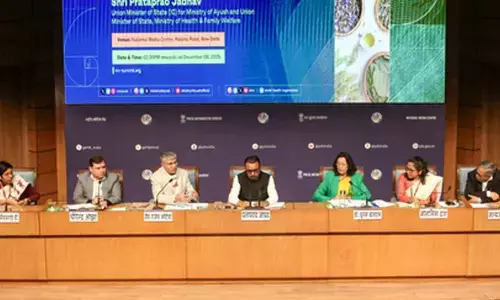Mental health issues in children can be tackled at home if detected early

Dr Shraddha Shejekar
The onset of the pandemic has brought with it not only physical illnesses but also a great deal of mental health issues. Both adults and children have been affected with various mental health issues.
The onset of the pandemic has brought with it not only physical illnesses but also a great deal of mental health issues. Both adults and children have been affected with various mental health issues.
There is the underlying fear of Covid-19 both in adults and with older children as they return to work or return to schools, which results in anxiety and paranoia. 2021 has been a very challenging year for children. They have been affected as they have been locked out of classrooms, robbed of the everyday joy of mingling with their friends and being cooped up at home.
Children have not had the opportunity to release their energy and are resorting to social media to make new friends, not being aware of the ill effects that social media can bring to them.
Studies show that anxiety and depression make up 40% of patients diagnosed with mental disorders. The others include attention deficiency, hyperactivity disorder, conduct disorder intellectual disability, bipolar disorder, eating disorder, autism, schizophrenia and a group of personality disorders.
Many children are filled with sadness, hurt or anxiety but are unable to express their feelings. Most children who have mental health issues will display behavioural changes such as not being obedient, resorting to stubbornness, developing poor food habits, preferring to be alone, spending long hours on social media and other online platforms, have sleep issues and could even have bed wetting problems.
With virtual schooling being the only other resort for schools, teachers could play a vital role in helping parents identify issues in children. For example, a decline in grades and behavioural issues while attending online classes should be communicated to the parents of the child so that corrective action can be taken at home itself.
We are today in a world where even in normal situations, parents do not have much time to spend with their children. The pandemic has made that even worse. With both parents often working from home, their stress levels are high and could affect their behavioural patterns. Parents must be mindful that they are responsible for the behaviour of another person, and more so their own children, because they often mirror what their parents do.
It is important for parents to ensure that they set aside quality time for their children. They need to be sensitive to the needs of their children and gain their trust so that their children can be open with them.
It is true that mental health issues can be more damaging than physical illnesses. One major contributor to that fact is the lack of stress that is laid on mental health in India. Indians have the 'be strong' mentality, and often tend to ignore mental health issues until quite often it is too late. One of the things that the pandemic has taught us is that our mental health is profoundly affected by the world around us. It is important therefore for parents to be watchful of changes in their children, like depression, obesity, binge eating etc. and try to tackle the issue at home itself.
Quite often, especially in children, these issues can be handled at the initial stages by closely monitoring the child and spending quality time with their children. It is important for parents not to wait till things go out of control to seek expert help. Parents should keep in mind that most mental health issues do not show up in the initial stages and are often diagnosed only when it is in the later stages.
We need to remember that even when the potency of the virus weakens, its impact on the mental health of the people will remain for years to come. We must therefore make it a priority to create maximum awareness of mental health issues, promote good mental health for every child and protect vulnerable children. Societies need to break the silence around mental health, promote understanding and take children and young people seriously.
(The author is Psychiatrist, Specialist Hospital, Bengaluru)














